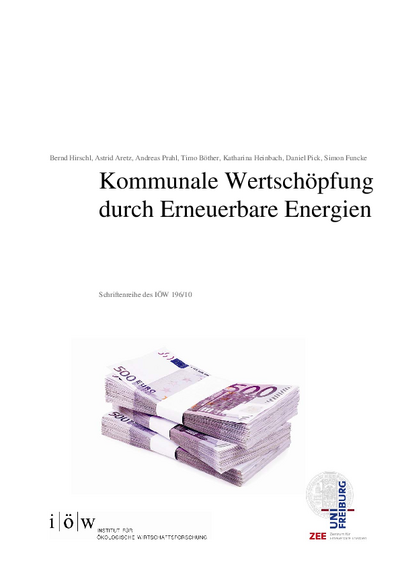Local value added by renewable energy technologies
Communities are important drivers in the development of renewable energies. They can benefit at the same time because, as a rule, previously imported energy feedstocks or final energy will be replaced by local energy sources, technologies and services. Simultaneously, a series of value added steps take place within the community itself and can generate positive local economic effects. Up to now, little is known about the real impact on local economies, i.e. which of the value added steps generally take place in the community and to what extent. Concerning the different possibilities and potential to generate local value added by different renewable energy technolo-gies, the knowledge gap is even greater. This is particularly surprising, since communities are in-creasingly recognizing the benefits of renewable energy and want to raise its potential. Moreover, a slight trend towards ‘100% renewable energy communities’ can be identified on a local and re-gional level. This highlights the high demand for such information and knowledge.
Against this background, it is the objective of this study to fill in the described knowledge gap. At the end of 2009, the Renewable Energies Agency (AEE) commissioned the Institute for Ecological Economy Research (IÖW) and the Centre for Renewable Energy (ZEE) to compile a study on this subject.



